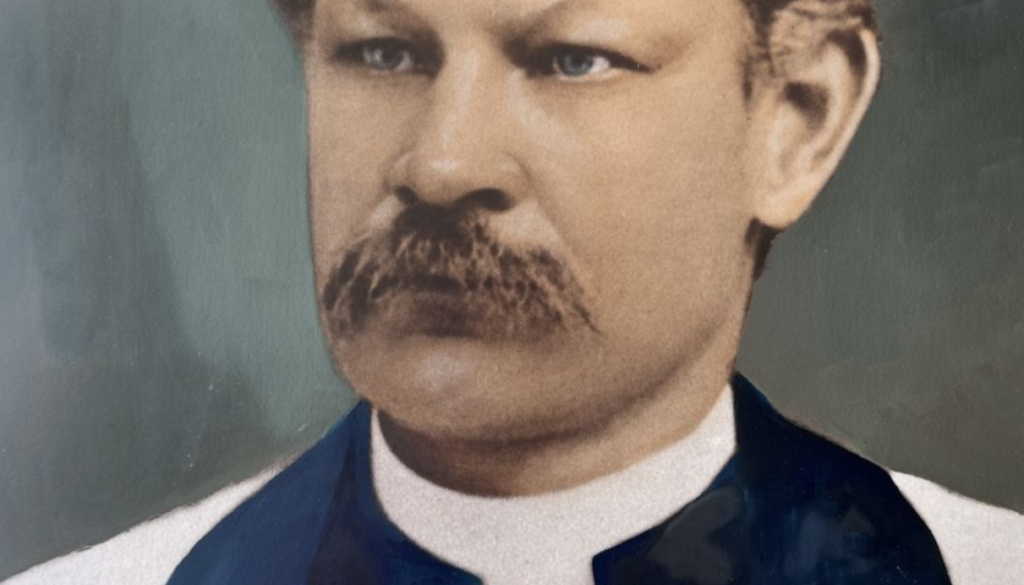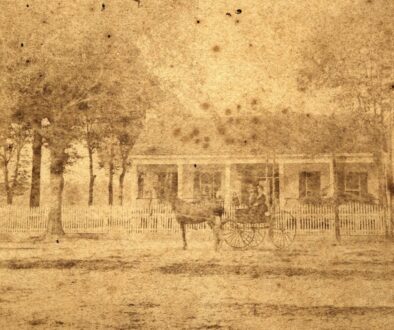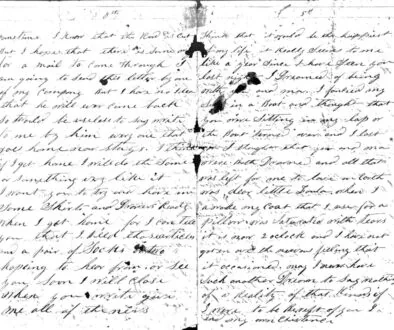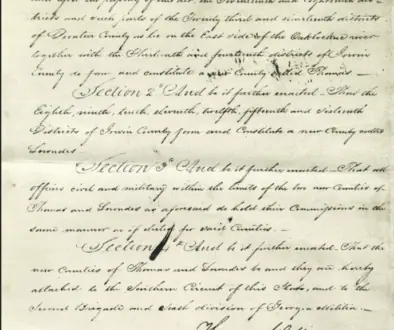The Search for Reverend LaRoche
Today’s blog post comes from the Rev. C. Wallace Marsh IV, Priest in Charge of St. Thomas Episcopal Church in Thomasville and speaker at our recent lecture collaboration with the congregation at St. Thomas. In this blog post, he describes the events that led to his interest in Rev. LaRoche, the priest of both St. Thomas and Good Shepherd Episcopal Church in Thomasville during the late 1800s.
Rev. Marsh grew up in Tennessee and attended college at Sewanee: The University of the South. He graduated with a BA in English Literature in 2001 but remained at Sewanee for three more years to serve as Lay Chaplain at All Saints’ Chapel. He then attended Yale Divinity School and was ordained in 2007. He has served as Associate Rector for the following churches: St. Paul’s, Albany, GA, St. James’, Marietta, GA, and St. John’s, Tallahassee, FL. Wallace spent the longest season of his ministry serving as Canon for Congregational Life and Canon for Liturgy and Pastoral Care at the Cathedral of St. Philip, Atlanta, GA.
Wallace and his family moved to Thomasville, GA in 2018, when Margaret Ann, his wife, became the VP for Sustainability and Environmental at Flower’s Foods, Inc. When they moved to Thomasville, Wallace taught English Literature, World History and Old Testament at Brookwood School. He also coached Football, Golf, and Tennis and currently serves as the school’s Chaplain.
___________________________________________________
I accompanied my wife to a work conference on Amelia Island a few years ago. It was my Spring Break (as I was teaching U.S. History), and I was ready for the beach and free food.
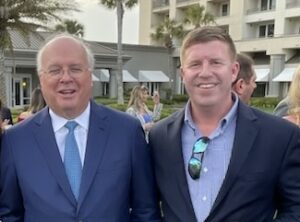 The speaker at the conference was Karl Rove. I saw Rove step out into the cocktail party and told Margaret Ann (my wife) I was going to get a photo with him. I pushed my way through the line and informed Rove that I was a high school history teacher and would use the photo in my class. He obliged.
The speaker at the conference was Karl Rove. I saw Rove step out into the cocktail party and told Margaret Ann (my wife) I was going to get a photo with him. I pushed my way through the line and informed Rove that I was a high school history teacher and would use the photo in my class. He obliged.
After the photo, Rove asked where I was from. I said Thomasville, and he asked if I knew about the election of 1896. I told him I covered McKinley, Hanna, William Jennings Bryan, and the gold standard in my class lectures, but had to move fast because I was more interested in getting to Theodore Roosevelt. Rove looked disappointed in my response.
Rove said McKinley was doing some amazing things in Thomasville. He was reaching out to black voters, trying to heal the country and expand the Republican Party. I told him my textbook didn’t present that information, where could I find it? He informed me he had written a book about McKinley and the election of 1896. I was embarrassed I didn’t know and tried to save face by letting him know I was an Episcopal priest in my second year of teaching U.S. History. I still had a lot to learn.
I ended the conversation by letting him know St. Thomas was built in 1889 and we even had an altar from the Hanna family. I told Rove I would read his book and look into the history of St. Thomas during that era. And that is how it started.
The Rev. C.I. LaRoche came to St. Thomas in 1884 and stayed until 1897, many years after the 1889 construction. Many clergy become exhausted after a building project and leave a few years later. Balfour’s “History of St. Thomas,” mentions LaRoche was also instrumental in the construction of Good Shepherd Episcopal Church (1894) and was their priest for a few years. LaRoche oversaw the construction of two Episcopal Churches in Thomasville!
Wait. What if Rove was correct? LaRoche knew the Chapin / Hanna family because they were leaders at St. Thomas. We also know LaRoche was instrumental in forming Good Shepherd (for the black community) and also serving as their priest. Would there be any way he was talking with Sen. Hanna and Gov. McKinley while they were here in the 1890s?
Unfortunately, I couldn’t find any letters (and am still searching). I called Charles Chapin and asked if he had any letters since his family was involved in both congregations. He did not have any letters, but he emailed a few days later letting me know LaRoche appeared in the Diocese of Washington in 1901, serving on a committee working with Black Churches. I started looking at the dates and noticed LaRoche left in 1897 (a month after McKinley took the oath of office) and he ended up in Washington DC!
At this point, I was convinced LaRoche had conversations with Hanna and McKinley. Yet, it seemed absurd. What are the chances the Rector of St. Thomas (me) could walk down Dawson Street and have conversations with some of the most powerful people in the nation? Not likely. For it to happen, it felt like LaRoche needed a relationship with those in power.
I spent some time looking into LaRoche’s past. He was born in 1851 on a plantation in South Carolina. The Civil War shaped his childhood. I called St. John’s, Johns Island (where LaRoche grew up) and asked the Rector if she knew anything about the family. I shared the information, and she began to laugh. She told me she was related to LaRoche’s wife, and her parents were currently in the mountains with LaRoche’s family. It’s a small world!
The family told me LaRoche was educated at Dr. Porter’s School after the Civil War (1867), and that opened up a new chapter. Dr. Porter has a fascinating story (“Led On” is his autobiography). What he did in South Carolina after the Civil War is pretty amazing. It happened because of a friendship he made with a Union Soldier in 1865. The friendship put Dr. Porter in good graces with Generals Sherman, Howard, and Grant. Do you see where this is going?
Dr. Porter had some powerful friends in Washington D.C. President Andrew Johnson helped him acquire land for black schools, and President Hayes (1879) helped him usher a bill through Congress to expand Porter School. LaRoche was a student when Porter was talking to President Johnson, and LaRoche was a priest (working with Porter) when conversations were happening with President Hayes.
LaRoche was shaped by the ministry and work of Dr. Porter, who did some amazing things for blacks and whites in Charleston after the Civil War. I believe LaRoche took Dr. Porter’s playbook and replicated it everywhere he went, especially in Thomasville.
I believe Dr. Porter’s protege would have been known by the Republican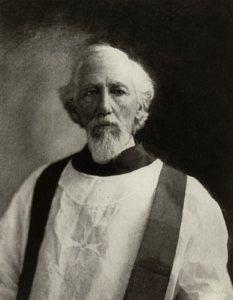 leaders (former Union Soldiers) who gathered in Thomasville in 1896. Did LaRoche have a political agenda? Yes. It was helping communities and people flourish. It was political, spiritual, and theological. When LaRoche left St. Thomas, the Thomasville newspaper described him as having “endeared himself to all classes of people by his genial ways and blameless walk.”
leaders (former Union Soldiers) who gathered in Thomasville in 1896. Did LaRoche have a political agenda? Yes. It was helping communities and people flourish. It was political, spiritual, and theological. When LaRoche left St. Thomas, the Thomasville newspaper described him as having “endeared himself to all classes of people by his genial ways and blameless walk.”
Image Credits:
- The Rev. C.I. LaRoche
- Karl Rove and Fr. Wallace
- Reverend Dr. Anthony Toomer Porter

